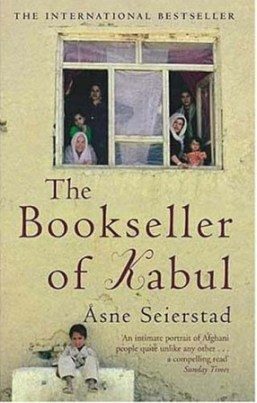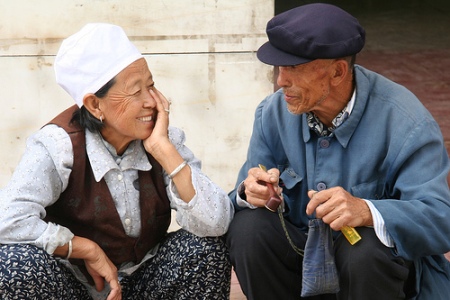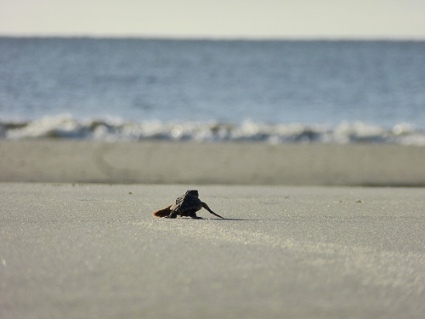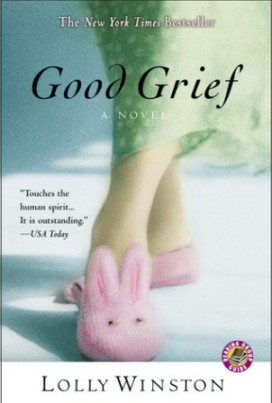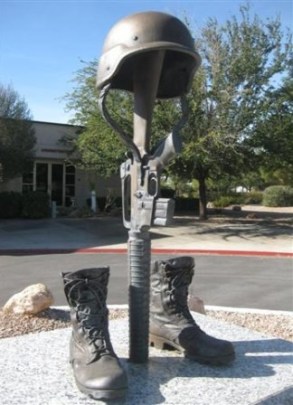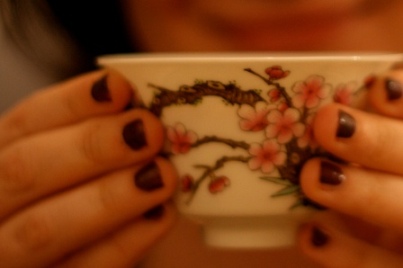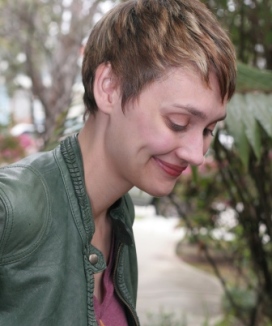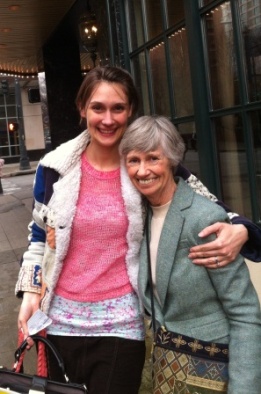The Bookseller of Kabul
Asne Seierstad
In the spring of 2002, Norwegian journalist Asne Seierstad moved into the home of a book seller in Kabul in order to write his story. Sultan Khan had spent his life defying those in power by supplying books to the city. He endured threats, book burnings and imprisonment, but his love for the written word and his fight against censorship never waned. Yet even as Khan resisted the authorities, he shared their fundamentalist views toward women. From this family’s personal account we learn of the strict codes enforced upon women (and men) in Afghanistan and its detrimental effects on their lives.
Find out more on Goodreads
Read today’s Afghan Women’s Voices on the Afghan Women’s Writing Project
The Sun
Edvard Munch
Plagued throughout his childhood with illness and loss, Edvard Munch (1863 – 1944) is known for paintings which attempt to illustrate the human psyche. His works often express bleakness, melancholy, anxiety and torment (The Scream). After recovering from a mental breakdown in 1909, his works, including The Sun, became more colorful and optimistic.
Learn more about Edvard Munch.
Fix Me Up
A Firm Handshake: Zach Sobiech and Sammy Brown
Lifelong friends, Zach Sobiech and Sammy Brown wrote this song for each other. Zach Sobiech passed away on May 20, 2013 at the age of 18 from osteosarcoma. Learn about his inspirational story on the My Last Days documentary by Soulpancake.
View all Zach’s music videos and learn about the Zach Sobiech Osteosarcoma Fund on Children’s Cancer Research Fund Website.
Find Zach’s music on iTunes.
Youtube Post by TheWoollyRhino
Good Grief
Lolly Winston
I Know, I know as I drive up 280 to work the next morning, that I should not be wearing my bathrobe. But I can’t stay home from work another day, and I simply couldn’t get dressed this morning. This is Sophie Stanton’s reasoning before she heads into the office to give a presentation in her bunny slippers. Newly widowed, Sophie is drowning in oreos and about to lose her job and house. Losing everything has left her numb and empty. But an empty heart is a chance to fill it up again.
Find Good Grief on Goodreads
Memorial Day
Remembering those who made the ultimate sacrifice
Afghanistan-Iraq War Memorial
Veterans Cemetery, Boulder City, NV
Drink Your Tea
Thich Nhat Hahn
Drink your tea slowly and reverently,
as if it is the axis
on which the world earth revolves
- slowly, evenly, without
rushing toward the future;
Live the actual moment.
Only this moment is life.
More about Thich Nhat Hahn
After the Storm
Mumford and Sons
And I took you by the hand
And we stood tall,
And remembered our own land,
What we lived for.
Help victims of the Oklahoma Tornado at the American Red Cross
More by Mumford and Sons
Youtube Post by corpsesflowersgrow
Author Sarah Skilton
An Interview with the author of Bruised
The heart is a muscle like any other.
Tearing it down is the only way
to make it stronger. – From Bruised
Growing up in the suburbs of Chicago, Sarah Skilton got an early start in her writing career by creating soap operas about cats. Many hours of her childhood were spent writing and performing TV and radio shows, complete with advertisements. So it was no surprise when Sarah graduated with a TV/Radio degree from Ithaca College in upstate New York. She later moved to Southern California where she has worked as a production assistant, a TV extra, a film reviewer, a blogger for a Japanese marketing company, and a script analyst. Sarah received her black belt in both Tae Kwon Do and Hap Ki Do and drew upon her martial arts experience for her first novel, Bruised. She lives in Los Angeles with her magician husband, Joe Skilton, and her 16 month old son, Elliot.
Sarah, thanks for speaking with Healing Hamlet. In college you studied screenwriting. As well as maintaining a career in film and TV, you are now a published YA (Young Adult) author. What was your journey from screenwriting to YA?
I think screenwriting and YA novels have some elements in common, namely the importance of pacing and dialogue. It’s been my experience that young adult novels tend to be plot-focused, much like screenplays. There’s certainly room for characterization and description, and many writers include both beautifully, but in general, the story itself is key, and must retain attention spans and interest from the first to last page. I had written an “adult” book prior to Bruised, but Bruised couldn’t have been anything other than young adult. The story needed to happen to a young person for it to have the most impact and make the most sense. I always envisioned it happening to a 16-year-old girl.
When I discovered Bruised, I expected to read about a girl working through post traumatic stress after living through a violent experience, but your character and your story were so much more complex than that. Imogen struggles with issues many teens face: a disconnection with parents, problems with friends, self doubt and isolation. As a Tae Kwan Do black belt, her sense of identity is shaken after she freezes when threatened. On top of all this, there is the additional burden of her father’s illness and the blame and fear that goes with it. Was the original concept this complex, or did you build these layers as the story progressed?
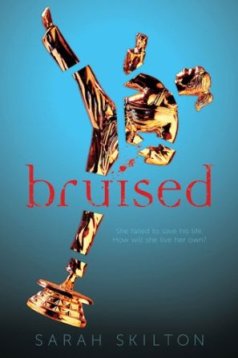
Thank you very much!
When I first wrote the story, I thought it had a standard amount of drama, but as I revised it, I wondered if I’d piled things on a bit too thick for my poor main character, Imogen. Ultimately, however, I came to believe that the universe doesn’t space things out in a neat or orderly fashion, nor did I think it was realistic for Imogen’s life to have been perfect before she witnessed the robbery and shooting. To answer the question more directly, yes — the original concept had the same layers and problems, though I did pare a few of them down slightly in the finished version.
None of the characters in your story can be easily boxed or categorized. We have the Tae Kwan Do expert turned coward (by Imogen’s account), the good friend turned bad friend, the hero father rendered helpless, the bully made humble, even the gunman has another side. Bruised puts a magnifying glass on what it is to be human. What do you hope the reader takes away about our human nature?
I’m glad you felt the characters were well-rounded — I was definitely hoping for that! I also wanted Imogen to come to the slow realization that neither she nor anybody else in the world is only “one thing”; rather, we all have hidden facets and aspects of our personalities that are not immediately apparent. At one point, Imogen’s boyfriend points out that she always chooses the worst thing about someone and decides that’s who they are. “Why not choose the best thing?” he asks, “Or the thing they do the most?”
When Imogen freezes at the hands of the gunman, she loses confidence and must find a way to redeem herself. What experiences did you draw upon to take Imogen through this journey? What advice do you have for those who feel they have lost confidence and direction?
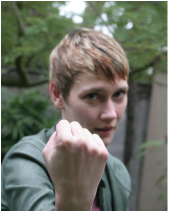 I’ve certainly been depressed in my life and struggled to find meaning in day-to-day activity, and I drew on that to describe some of Imogen’s numbness and feelings of pointlessness. As for advice, I would say, Don’t be hard on yourself. Give yourself time — real time, where you don’t parse the days or weeks — to heal and move on, and gain perspective on the event. Focus on enjoyable activities, whether it’s reading, drawing, watching films, going on long walks, spending time with friends or family, or just allowing yourself to relax until you remember the good parts of life again. Know that the past doesn’t dictate the future.
I’ve certainly been depressed in my life and struggled to find meaning in day-to-day activity, and I drew on that to describe some of Imogen’s numbness and feelings of pointlessness. As for advice, I would say, Don’t be hard on yourself. Give yourself time — real time, where you don’t parse the days or weeks — to heal and move on, and gain perspective on the event. Focus on enjoyable activities, whether it’s reading, drawing, watching films, going on long walks, spending time with friends or family, or just allowing yourself to relax until you remember the good parts of life again. Know that the past doesn’t dictate the future.
Imogen has an imperfect but loving and well-intentioned family. How would her story have been different if her family was unable or unwilling to help?
I imagine it would have taken her much longer to recover and put the pieces of her life back together. A support system is vital, whether or not your problems are considered big or small.
My favorite quote from Bruised is: The heart is a muscle like any other. Tearing it down is the only way to make it stronger. Have you thought about putting this on a plaque?
Thank you! No plaque plans yet, but duly noted.
During the process of publishing your first book, you had a baby boy. How has becoming a mother affected you as a writer?
Because my son is new to the world, he notices things like shadows, sunlight, grass, twigs, rocks, dirt, trees, and animals in a way that is filled with genuine curiosity and even awe and delight. I’d like to think that observing his reactions to his surroundings has helped me learn new ways of describing objects, emotions, and details.
On a practical note, I have to weigh my hours very carefully so that I can balance spending time with family, working a day job, and finding time to write. Basically, there is no balance; some days are more of one aspect and less than the others, and that’s OK. I try to focus on whatever it is I’m doing in the present. (Which means turning off my cell phone so I’m not tempted to check email.) It can be a challenge!
Your next book for young adults, High and Dry, is coming out in 2014. What can you tell us about it?
It’s a mystery about a high school soccer player, a boy this time, who finds himself in a metaphorical quicksand of trouble. He’s framed for a stranger’s near-fatal overdose at a party, blackmailed into finding a missing flash drive that everyone at school seems anxious to suppress, and pressured to throw a big soccer match, all while trying to win back the girl of his dreams and escape a past that might be responsible for all his current problems.
Any other projects you are currently working on?
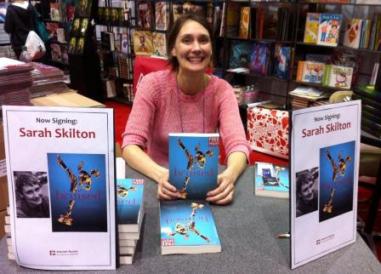 I’m writing a third young adult book, but after typing about 1/3 of it, I realized I need to start over from a different angle. I’m hoping to use the material in a different way. I don’t consider it a waste because I got to know the characters and their backgrounds, but I think giving the story a fresh start will make a big difference.
I’m writing a third young adult book, but after typing about 1/3 of it, I realized I need to start over from a different angle. I’m hoping to use the material in a different way. I don’t consider it a waste because I got to know the characters and their backgrounds, but I think giving the story a fresh start will make a big difference.
How does your work in TV and film feed into your writing? What other experiences influence your stories?
I read screenplays for a living, and just like with reading books, the experience of seeing what works teaches me how to apply it to my own stories. I also draw on real life, either my own experiences, or experiences of friends and family, for that initial spark of idea.
What one person do you most admire and why?
I most admire my mother, Rosalind, who grew up in Harare (Zimbabwe), and moved to the U.S. for the first time when she was 24 after marrying my dad, who was from Illinois. To leave behind everything and everyone you know takes enormous bravery, and she’s got this quiet strength that embodies the British truism, “Keep Calm and Carry On.” She goes with the flow, she’s always up for an adventure, she often volunteers to help others, and she happens to be the kindest and most patient woman I know.
If you could be matched against anyone (real of fictional) in Tae Kwon Do, who would you choose?
Sidney Bristow (Jennifer Garner) from Alias.
